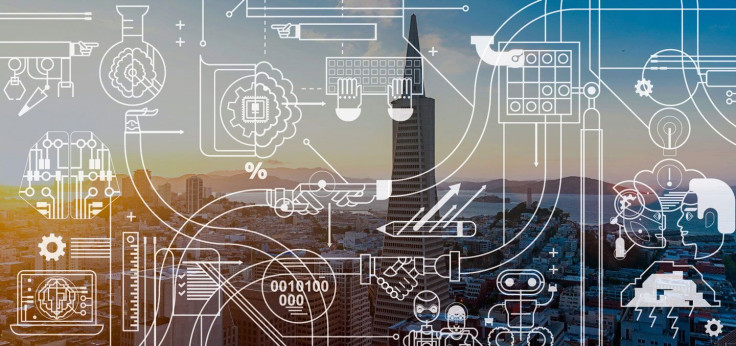Artificial Intelligence Vs Humans: AI More Likely To Enhance Life Rather Than Harm It

When it comes to artificial intelligence, you don’t have to worry about killer robots taking over the world. In fact, AI promises to change our lives in ways we are beginning to experience, according to a survey produced by Stanford University.
With a project called One Hundred Study on Artificial Intelligence (A100), Stanford is taking the long view of AI. The study, written by a panel of AI experts from various fields like healthcare, continue to release reports examining how AI will change different aspects of daily life.
In the first report, Artificial Intelligence and Life in 2030, takes a look into the effects AI advancements will have on a North American city in a decade from now.
First off, contrary to most predictions of AI in pop culture, the study found little cause for concern. “Instead, increasingly useful applications of AI, with potentially profound positive impacts on our society and economy are likely to emerge between now and 2030,” the report said.
When it comes to healthcare, artificial intelligence promises to enhance ways of life that should learn to be embraced.
“For AI technologies, healthcare has long been viewed as a promising domain. AI-based applications could improve health outcomes and quality of life for millions of people in the coming years — but only if they gain the trust of doctors, nurses, patients, and if policy, regulatory, and commercial obstacles are removed,” the panel of experts reported.
Data is a key enabler, with advances in collecting data from personal monitoring devices and mobile apps, from electronic health records in clinical settings and from robots designed to assist with medical procedures and hospital operations.
However, progress, has not has been as fast as initially imagined.
“Using this data to enable more finely-grained diagnostics and treatments for both individual patients and patient populations has proved difficult, the panelists wrote. “Research and deployment have been slowed by outdated regulations and incentive structures. Poor human-computer interaction methods and the inherent difficulties and risks of implementing technologies in such a large and complex system have slowed realization of AI’s special purpose robots will deliver packages, clean offices, and enhance security, but technical constraints and high costs will continue to limit commercial opportunities for the foreseeable future.”
The removal of these obstacles have the potential to significantly improve health outcomes and quality of life for million son people in the coming years.
Clinical settings
The report says the use of electronic health records (EHRs) has not progressed smoothly. A small group of companies control the EHR market, and user interfaces are widely considered substandard. The promise of new analytics using data from EHRs, including AI, remains largely unrealized due to these and other regulatory and structural barriers. In the next 15 years, AI advances, if coupled with sufficient data and well-targeted systems, promise to change the tasks assigned to human clinicians, scientists say.
“The opportunity to exploit new learning methods, to create structured patterns of inference by mining the scientific literature automatically, and to create true cognitive assistants by supporting free-form dialogue, has never been greater,” the report stated.
Healthcare analytics
AI’s ability to mine outcomes from millions of patient clinical records promises to enable finer-grained more personalized diagnosis and treatment.
“Traditional and non-traditional healthcare data, augmented by social platforms, may lead to the emergence of self-defined subpopulations, each managed by a surrounding ecosystem of healthcare providers augmented with automated recommendation and monitoring systems,” the report said. These advances may transform healthcare delivery as medical procedures and lifetime clinical records for hundreds of millions of individuals become available.
Unfortunately, the FDA has been slow to approve innovative diagnostic software and HIPPA requirements for protecting patient privacy that create legal barriers to the flow of patient data to applications that could take advantage of AI technologies.
Elder care
This category offers a variety of AI innovations. Smart devices in the home will help with daily activities, such as cooking, dressing and toileting, that is if robot capabilities improve sufficiently.
In-home health monitoring and health information access will be able to detect changes in behavior or behavior and caregivers will be alerted.
Personalized rehabilitation and in-home therapy will reduce the need for hospital or care facility stays.
The report concludes that a significant AI-related advances have already impacted North American cities over the past 15 years, and more developments are expecting in the next 15, provide they are managed.
“Recent advances are largely due to the growth and analysis of large data sets enabled by the Internet, advances in sensory technologies and, more recently, applications of ‘deep learning,’” the report noted. “In the coming years, as the public encounters new AI applications in domains such as transportation and healthcare, they must be introduced in ways that build trust and understanding, and respect human and civil rights.”
© Copyright IBTimes 2024. All rights reserved.





















